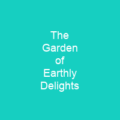Imagine a place where every day feels like a celebration, a realm untouched by sorrow and filled with endless joy—this is what we call paradise in religion and folklore. It’s a concept that has captivated human imagination for centuries, often serving as a stark contrast to the struggles of earthly life. But just how did this idea come about? And where does it truly reside?
The Word ‘Paradise’: A Journey Through Time
The word “paradise” traces its roots back to Old Iranian languages, meaning “walled enclosure.” Over time, it evolved into a symbol of an idealized garden or domain. In the Hebrew Bible, the term “pardes” initially referred to a park or garden but later became synonymous with the Garden of Eden and prophecies of restoration.
Paradise in Religion
In many religious traditions, paradise is not just a physical place but also an ethereal state of being. For instance, in Hinduism and Buddhism, it’s often associated with higher levels of heaven where beings achieve special attainments through virtue and meditation. The concept of paradise also appears in Christian theology, where it is described as the eternal home for the righteous.
Paradise in Christianity
In early Christian texts, paradise was often linked to Abraham’s bosom, a place where souls of the righteous would reside until the resurrection. A famous passage from Luke 23:43 captures Jesus’s promise to one of the crucified criminals: “Today you will be with me in paradise.” This phrase has been interpreted differently across various translations and manuscripts.
Paradise in Judaism
Jewish eschatology also speaks of a restored Garden of Eden, known as the ‘Garden of Righteousness.’ Rabbinic teachings suggest that there are two types of spiritual places called “Garden in Eden,” each with its own unique characteristics. The Zohar, a central text in Kabbalah, provides mystical interpretations and links paradise to different levels of Biblical exegesis.
Paradise in Islam
In Islamic tradition, heaven is referred to as Jannah (garden), with the highest level being Firdaus. This concept is deeply rooted in the Quran, which describes paradise as a place of immense beauty and pleasure. The Quran mentions 166 references to gardens, including 19 that specifically mention Jannah.
Paradise in Art and Literature
The idea of paradise has been immortalized in art and literature throughout history. In pre-Enlightenment works like John Milton’s Paradise Lost, the concept is explored through epic poetry, painting vivid images of a perfect world.
Modern Interpretations
In modern times, different religious groups have their own interpretations of paradise. For example, Jehovah’s Witnesses believe that paradise will be restored on earth after Armageddon, while Mormons see it as the spirit world where spirits dwell following death and await resurrection.
The Universal Dream of Paradise
Across cultures and religions, the concept of paradise remains a universal dream—a place where all is perfect. Whether it’s described through the lush gardens of ancient texts or depicted in the intricate mosaics of Islamic art, the idea of paradise continues to inspire and captivate us. In essence, paradise is not just a physical location but a state of mind—a place where every moment is filled with joy and peace. It’s a reminder that no matter how challenging our lives may be, there is always hope for a better tomorrow. 
You want to know more about Paradise?
This page is based on the article Paradise published in Wikipedia (retrieved on January 24, 2025) and was automatically summarized using artificial intelligence.







